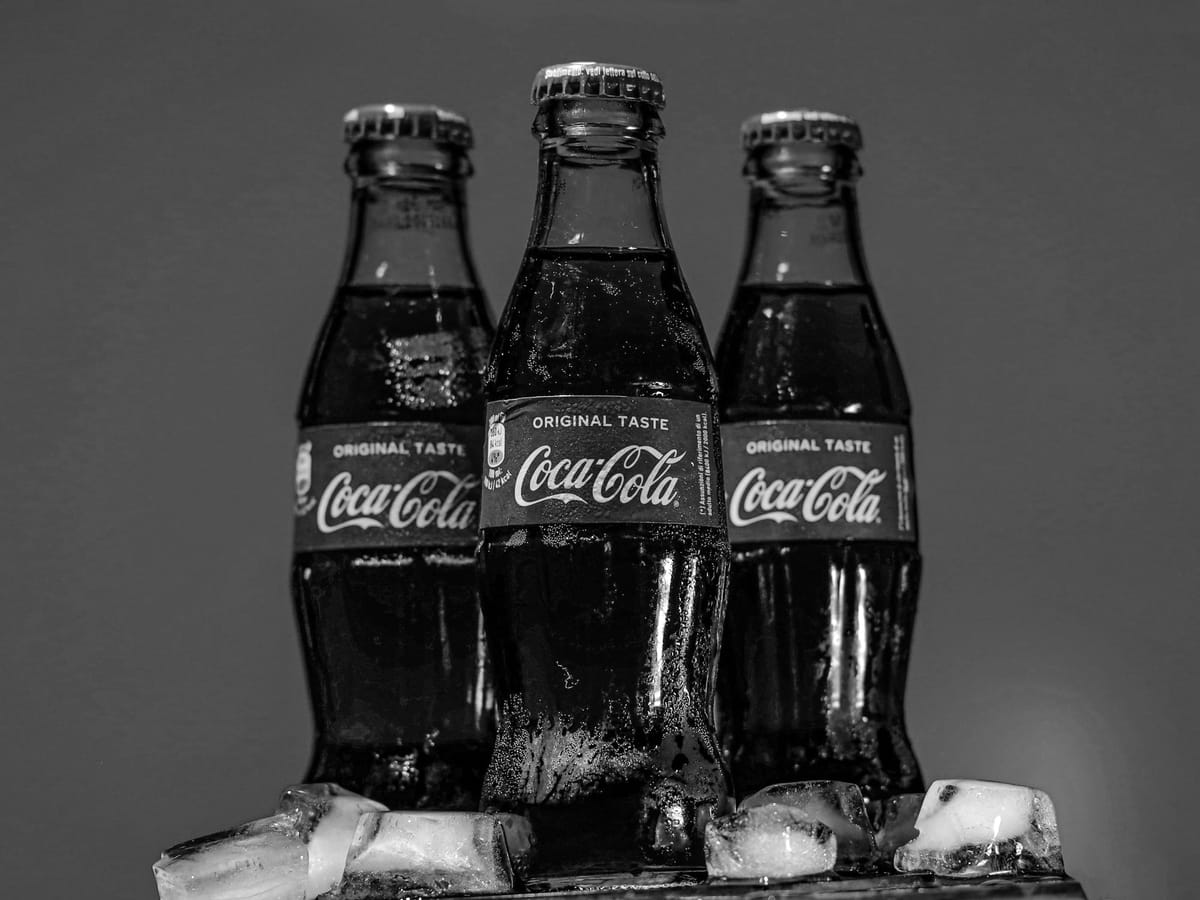Surplus de cave a passer au verre?
Why you need to play big, or not at all.

Why is good performance not enough?
Why is outperformance necessary?
To a large extent, the one-word answer to both of those questions is the concept of "surpluses".
Surpluses lead to people having the necessary resources to focus some of their time on supplementary (and then also, eventually, complementary ) endeavours. They have the time and the money to dabble deeper and wider. They have the time and money to be able to think, rather than to just do. They have the time and money to tinker and to innovate; to try and to experiment. To play.
When these innovations then get pumped back into the system and when at least some of these innovations are then "good" (in the business - not necessarily moral - sense of the word), it leads to more outperformance which then leads to more surpluses.
Make 2024 the year of outperformance
Jon Cherry is a strategic growth facilitator who works with organisations to build brands and ventures that deliver outperformance.
Get in touch to discussThis is the great gift that we receive from surpluses: "Money makes money" according to Benjamin Franklin. And Franklin's quote had an important second part too: "and the money that makes money makes more money". Franklin was, of course, talking about compounding, i.e. compound interest.
Compound interest is the concept which Albert Einstein called "the eighth wonder of the world". And Einstein's quote also had an important second part: "He who understands it, earns it ... he who doesn't ... pays it."
And, there's the rub. Good performance is only fine if nothing changes. It is only fine if your competitor is also just doing well. But, you are dead - in the sense of then having to "pay that interest" - when your competitor starts "earning the interest".
Jared Diamond's book "Guns, Germs and Steel" uses this argument to explain why the Eurasian and North African parts of the world moved so far ahead of the societies elsewhere on the planet (before colonialization).
These northern societies moved into a cycle of innovation upon innovation, whereafter they could eventually become the extractor of the 'interest'; i.e. the wealth. And, as we know, much of that wealth was then extracted from the global south.
The most egregious example was probably that of King Leopold II of Belgium who treated the Congo as his personal possession. David van Reybrouck's account of that history - and what followed - is worth a read. And, in terms of fiction, there is, of course, Joseph Conrad's "Heart of Darkness". "Heart of Darkness" also, by the way, served as the basis for Francis Ford Coppola's Vietnam War movie "Apocalypse Now".
Furthermore, those who had the innovation-lead could even extract wealth from other areas where there were also huge amounts of innovation. Simply just being ahead (even if you are not that far ahead) matters. It really matters a lot and here's the example of Britain and India.
Following the Battle of Buxar in 1764 (i.e., the British victory over the Mughal Empire), India's share of of the total economy of the world then gradually dropped from 25% at that time (i.e. a quarter of the world's economy) to about 3% at the time of its eventual Independence 183 years later. Before 1764, India performed very well, but Britain outperformed (in terms of the types of the types of innovation that mattered at that time).
Yes, this is a very crude example on a very large scale, but is also an extremely powerful example of what the consequences of differences in innovation and performance can be. According to the Indian academic and economist Utsa Patnaik's calculations Britain extracted about $45-trillion from India (i.e., around 15 times the UK's current annual GDP) during the reign of the Raj. Patnaik's assertion and/or her calculations are being disputed by some, but facts such as the dramatic drop in India's share of the planet's economy remain.
The Britain/India scenario is an example of the far-reaching consequences of having the innovation advantage. The "Guns, Germs and Steel" argument, though, is that these advantages were not as a result of European superiority (in any sense of that word). It was as a result of a set of preconditions such as geography and climate, which lead to agriculture, which lead to disease immunity, organized states, and innovation. (You can find the full thesis in Diamond's book.)
With the deep knowledge that we now have in terms of concepts such as Change, and with the sophistication that has been built around the concept of Strategy, we now have other options. We don't need to hope that our current conditions (our pre-conditions) will be the ones that will eventually prove to be the 'best'. We can use strategy to shape our future.
We can encourage innovation. We can do that encouragement through more than just rhetoric. We can structure for innovation. We can introduce processes for innovation. We can use the correct funding mechanisms for innovation. We can launch ventures as opposed to just projects. We can understand the transitory nature of our Best Practices. We can identify and eliminate our cargo-cult ceremonies. We can more deeply understand the need for technical debt, technical investment and technical ambition.
We can do all this. And we now have the recipes to do this. Some organizations will ignore these recipes, but the business-future belongs to those who put these recipes to work.
Lastly, here is an example of an approach, based on deep understanding of the concept of a 'surplus', that allowed for even more time and even more money to enable innovation. Sanctioned "Skunkworks".
Google started as a venture - a structure that prized growth, change and innovation about everything else. Yet Google, from a very early point in the lifespan of the company, also introduced the concept of "20%-time". Employees were encouraged to spend 20% of their paid time on pursuing personal projects. And services such as Gmail originated from ""20%-time". The founders, Larry Page and Sergei Brin, truly understood the importance of outperformance.
In the late 1990s, web-based development started as Skunkworks in Woolworths (South Africa). This lead to (inter alia) quite a few firsts from Wooltru and Woolworths, at the time, and positioned them well to dominate in that space.
Resting on those laurels, however, made them squander a two-decade advantage. They allowed Shoprite, where innovation was structurally prized, through ShopriteX, to shoot past them in the digital space (with Checkers Sixty60).
Outperformance matters. Surpluses matter.
And surpluses have mattered at least since Genesis 47:14. (This refers to Joseph gathering the surplus grain for the Egyptian Pharaoh). And many of us - i.e. those who know at least some parts of some of the various Holy books such as the Bible, Qur'an, Bhagavat Gita, etc. - know what transpired thereafter.
Previously:




